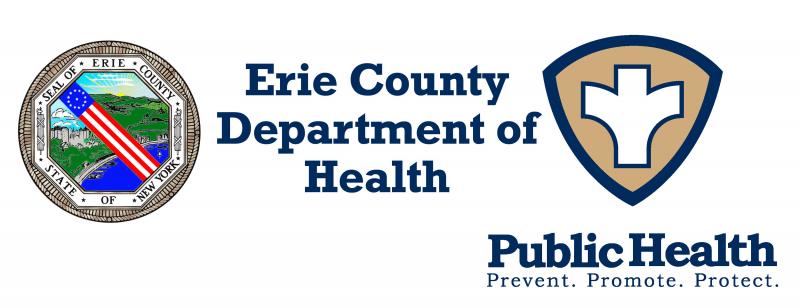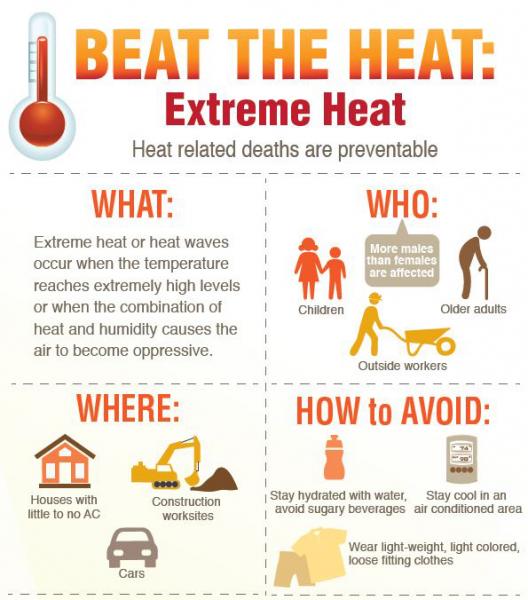Modified: August 12, 2016 4:40pm
Latest News

PRESS RELEASE
From the Office of the Commissioner of Health, Dr. Gale R. Burstein
Date August 12, 2016
CONTACT: Mary C. St. Mary/Mary.StMary@Erie.Gov
Phone: 716.858.4941/ Mobile: 716.253.3925
Staying Cool in Extreme Heat & Humidity
Those Most at Risk Strongly Encouraged to Take Necessary Precautions
ERIE COUNTY, NY — As Erie County continues to experience weather with both high temperatures and high humidity, Erie County Health Commissioner Dr. Gale Burstein reminds residents how extremely high temperatures can affect your health.

On average, 675 deaths from extreme heat events occur each year in the United States. Anyone can become dehydrated,
“It is very easy to underestimate how seriously heat can affect people. It is important to remember during days of higher than normal temperatures to do your best to keep your body temperature cool. Stay in air conditioned spaces as much as possible, or find one if your home is not air conditioned. Do not rely on a fan to be your cooling device; take cool showers and baths as needed. Drink more water than usual, at least 6-8 glasses a day and more if you are active; do not wait until you are thirsty to do so. Avoid caffeine, alcohol and sugary drinks and remind others to do the same. Everyone should be aware of the signs of heat exhaustion and heat stroke,” said Burstein. but those most vulnerable are the elderly, people who work or exercise outdoors, infants and children, the homeless or poor, and people with a chronic medical condition. Excessive heat can lead to sunburn; heat cramps, heat exhaustion and heat stroke.
Signs include:
|
Heat Exhaustion Symptoms |
What to Do |
|
Heavy sweating |
Move to a cooler location |
|
Weakness, Exhaustion, Dizziness |
Lie down & Loosen clothing |
|
Skin cool, pale, Clammy, Flushed |
Apply cool, wet cloths |
|
Weak Pulse |
Sip water |
|
Fainting, Vomiting, Nausea |
Seek medical attention immediately if you have vomited and it continues |
|
Heat Stroke |
What to Do |
|
High body temperature (above 103°F) |
Call 911 immediately – this is a medical emergency |
|
Hot, red, dry or moist skin |
Move the person to a cooler environment |
|
Rapid and strong pulse |
Reduce the person’s body temperature with cool cloths or a bath |
|
Possible unconsciousness |
Do NOT give fluids |
Burstein concluded: “Remember that the elderly, those with chronic medical conditions and the very young are especially susceptible to heat’s effects. Do not stay in parked cars, even with the windows cracked. Avoid direct sunlight when possible and drink plenty of non-alcoholic fluids. Wear lightweight, loose, light colored clothing; remember a hat and sunglasses to protect your face and eyes. Use a sunscreen with a minimum SPF30; apply it generously at least 15 minutes before going outside and reapply it every 2 hours—even on a cloudy day. Most importantly, check on family, friends and neighbors who fall into the most-at-risk category twice a day to ensure their continued wellbeing.”
 For more information:
For more information:
Erie County Department of Health
Centers for Disease Control and Prevention
New York State Emergency Management
# # #

